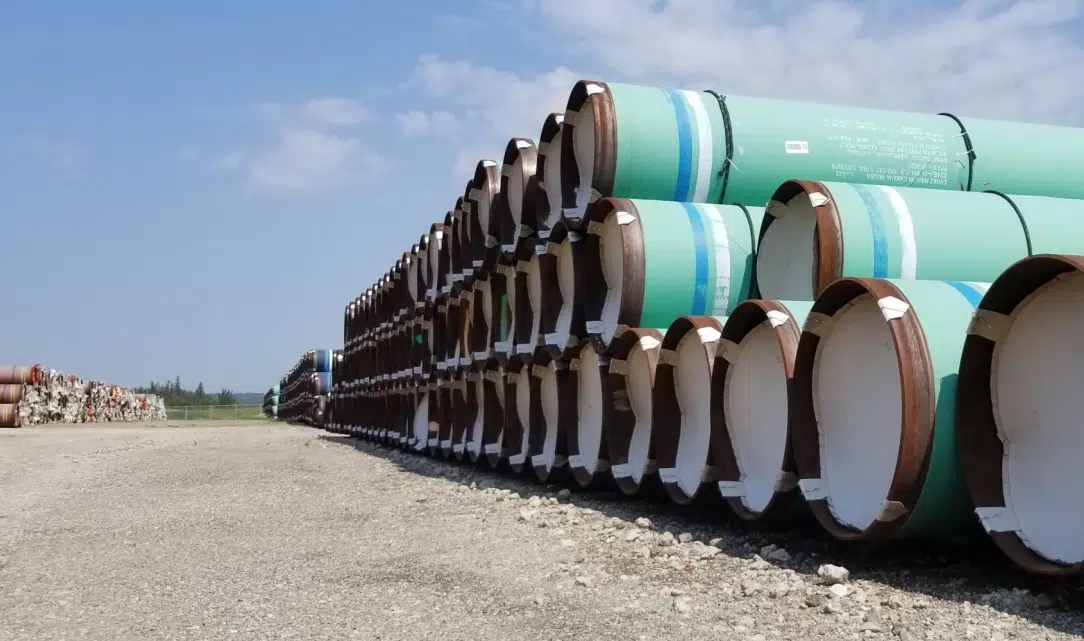
A legal challenge from four Indigenous communities over the re-approval of the Trans Mountain pipeline has been dismissed by the Federal Court of Appeal.
The challenge was brought forward by the Coldwater Indian Band, just south of Merritt, as well as three coastal Indigenous communities, those being the Squamish Nation, Tsleil-Waututh Nation and seven Ts’elxweyeqw Tribes, near Chilliwack.
At a press conference, Coldwater Band Chief Lee Spahan says there are some positives with today’s news, notably the Federal Court of Appeal confirming that Trans Mountain has a duty to consult with the band about routing the pipeline through its territory.
“We are very disappointed, however today the court did confirm that the route through the Coldwater Valley still has to be determined,” Spahan said. “Risks to our community drinking water still need to be studied, that work is underway.”
The court decision indicated there was no way to negotiate further with the band, saying Chief Spahan said ‘no route was safe enough’ to protect the band’s aquifer – their only source of drinking water.
“The court has confirmed Canada has ongoing duty to consult with us on these very important issues. It remains to be seen whether the Crown will discharge its obligation to meaningfully consult Coldwater on routing and protection of our water,” added Spahan.
The Stk’emlupsemc te Secwepemc Nation – which includes the Tk’emlúps te Secwepemc and the Skeetchestn Indian Band – were originally part of the court challenge, but withdrew in early November after coming to an agreement with the Trans Mountain pipeline.
The court challenge came forward because the Indigenous communities involved didn’t think the second round of consultations was sincere, and it called for the second decision to approve the pipeline by the National Energy Board (Canadian Energy Regulator) to be overturned.
The Kamloops-North Thompson MLA and BC Environment Critic, Peter Milobar, says the latest ruling will bring more certainty to the long delayed project, which has economic benefits for communities in the North Thompson.
“Every community in the valley is supportive and so I think it’s good for our Indigenous communities as well as our non-Indigenous communities,” he said. “So it’s nice to see a final decision. It’s nice to see clarity and it’s extremely good to see that we know as we head into spring that construction will be in full swing.”
And when construction gets underway, Milobar says he’s hoping there won’t be any protests.
“Frankly, it’s been through the courts every which way now and it has been told that it can proceed,” added Milobar.
“So no good will come of that and all those would serve to do right now would put protestors in harms way. It will put workers at risk as well and it will really inflame tempers.”
A spokesperson for Trans Mountain says the Crown corporation is not doing any interviews today. However, in a statement, Trans Mountain President and CEO Ian Anderson said the company is pleased with the Court’s decision.
“After many years of consultation and review we are pleased to be able to continue moving forward and building the Project in respect of communities, and for the benefit of Canadians,” Anderson noted.
“The Government of Canada’s additional Indigenous consultation represented an immense undertaking by many parties. The Government was committed to a specific and focused dialogue with affected Indigenous communities to ensure Canada, and the Company heard their concerns and responded.”
– With files from Victor Kaisar














